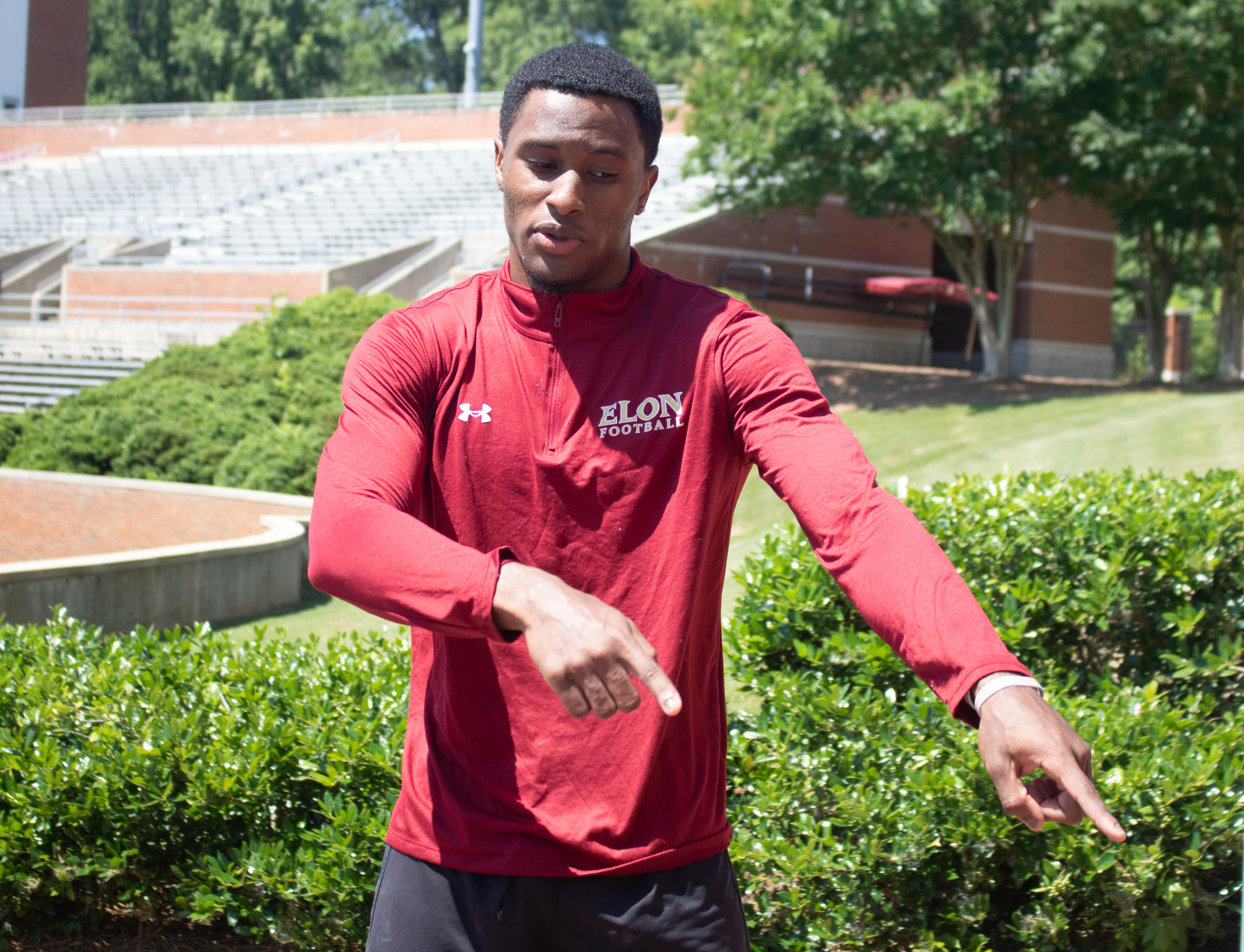
Jesse Powell is a starting defensive back and linebacker for the Elon Football team, but his pathway was different from his fellow players on the field. Powell was a walk-on athlete who rose the ranks from receiving no scholarship to a full-ride sports and academic scholarship. The journey was difficult but impactful for Powell.
“That’s probably the biggest thing. Like all of us walk-ons, I think the biggest thing you can see from all of us is that we progressed like personally in some shape or form,” Powell said.
Fellow teammate Emerson Baker also joined the team as a walk-on. Baker is a backup center on the team who said the hard work to become a walk-on pays off not only now but in the long run.
“If you bet on yourself and you take it one day at a time, you’ll be amazed after two years,” said Baker, “Walk-on athletes are players who try out for a college team without being actually recruited or receiving an athletic scholarship. But depending on the level of effort they put in, scholarships can be earned later in their collegiate careers.”
Elon football head coach Tony Trisciani said the success of a collegiate athlete is not a linear process or a simple one, however those who walk-on gain value from the experiences they encounter both before and after they make the team.
CaptainU, a collegiate sport recruiting platform, reported in 2021 that 49% of Division I college athletes are walk-ons. Even though walk-ons do have the opportunity to make the team, it doesn’t mean it is an easy process.
Trisciani said his expectations for the character and demeanor of his players are the same no matter the amount of money they receive from the bursar’s office.
“We’re looking for their attention to detail, their coachability, their willingness to strain and finish and compete,” Trisciani said.
These traits, although applicable to all football players, are how walk-ons can make themselves stand out. Baker said the lessons he learned as a walk-on player are immensely valuable.
Baker was recruited to play football by multiple Football Championship Subdivision institutions, including Davidson and Presbyterian College, but ultimately Elon University was the only Football Championship Subdivision school to provide him with the opportunity to follow his dream. Trisciani noted the goals of many walk-on athletes are often very challenging to achieve and require immense support to do so. He added that when he meets with players’ parents, he tries to empathize with the commitment and sacrifice they are making to support their child.
“It takes the whole family to support the walk-on,” Trisciani said.
Powell discussed how he often used his family support as a form of motivation on the field. He said he wants to succeed in order to inspire his younger family members to be better and do better.
He also said he knows the amount of effort he has to give every day in practice to remain part of the team.
“As a walk-on, I say the biggest thing is when you’re trying to get on a scholarship, you can’t give the coaches no reason not to give you one,” Powell said.
Players said they take what they learn from being a walk-on to heart and apply it on and off the field, specifically in the challenges and struggles they may face, both in college and in the professional setting. They use these strategies of resilience the walk-on process teaches.
“I’ll always look back on this and be grateful for the discipline, motivation and the hard work that it’s taught me to have and that will carry me for the rest of my life,” Baker said.


